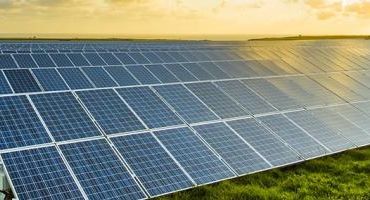
Climate Change
The adverse impacts of climate change in the EAC region are a huge threat to the region’s socio-economic development, negatively affecting livelihoods and economies. These are evidenced through extreme weather phenomena (droughts and floods) that are occurring with greater frequency and intensity and result in:
- food insecurity,
- energy insecurity,
- land degradation,
- loss of biodiversity,
- reduced revenue from tourism,
- increase in pests and diseases,
- rise in sea level,
- water scarcity,
- natural resource-based conflict, and
- severe damage to infrastructure among others.
According to the EAC Regional Climate Vulnerability Impacts Assessment (VIA) report 2018, the GDP contribution of the agricultural sectors has declined in four of the seven countries and was stable in Tanzania. This is due to its increasing vulnerability to climate variability and change trends that result in decline in its agricultural productivity. In part, this is because the region’s agriculture is heavily dependent on rain-fed smallholder farms.
Hydropower accounts for 35-90% of the energy produced in the EAC countries. However, climate change and variability present increasing challenges for energy production and transmission. A decline in rainfall levels by approximately 10 millimetres per year and a continued rise in temperature by more than 2.5 degrees Celsius over the next 30 years will lead to increased surface water loss from dams through increased evaporation (EAC VIA report, 2018).
Furthermore, EAC’s Partner States are Parties to United Nations Framework Convention on Climate Change (UNFCCC) and are implementing their Nationally Determined Contributions (NDCs) following the signing and ratification of the Paris Agreement.
The adverse impacts of Climate Change aggravated by the increasing average global temperatures are a threat to the livelihoods of people in almost all sectors of the economies of the EAC region. Severe droughts, floods and extreme weather events associated with climatic variability are occurring with greater frequency and intensity in the region. The dependence on rain-fed agriculture in the EAC region implies that agricultural production is highly vulnerable to climatic variability and climate change.
Areas of focus for the region are climate change adaptation, climate change mitigation, climate change science and climate finance. Climate change priority areas include:
- Development and implementation of climate change public awareness, adaptation, mitigation and capacity building activities;
- Resource mobilization to support regional climate change programmes and projects;
- Support the review of regional climate change response instruments and tools including the Master Plan, policies and strategies;
- Support the development of joint monitoring and evaluation frameworks on climate change activities at the field and policy level and overseeing their implementation;
- Support climate change communication strategy and ensure effective dissemination of evidence-based policy options to all relevant stakeholders;
- Development of regional climate change policy agenda in view of the international climate change processes; and
- Promotion of institutional linkages, partnerships and collabortaions with relevant national and regional and international climate change stakeholders.


